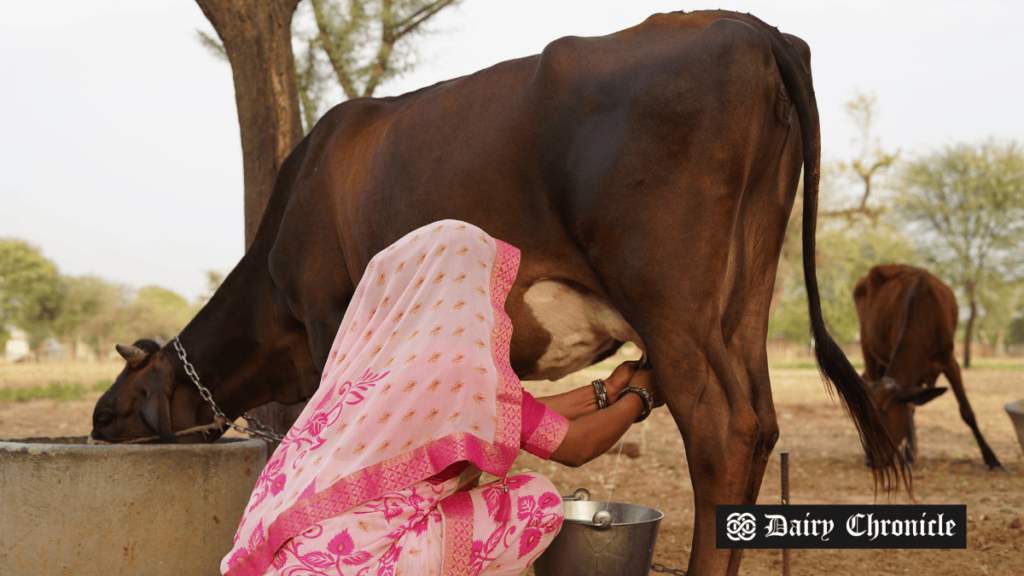The Uttar Pradesh government is introducing new measures to enhance cow protection, increase milk production, and promote the commercial use of cow dung and urine. Initiatives include training programs, vermicompost units, and mobile veterinary units.
The Uttar Pradesh government is taking significant steps to bolster cow protection and milk production, alongside promoting the commercial use of cow dung and urine. In a recent meeting chaired by Animal Husbandry and Dairy Development Minister Dharampal Singh at the Mahakumbh, the government outlined a comprehensive strategy that includes training programs, the establishment of vermicompost units, and improvements in healthcare services for livestock.
Uttar Pradesh’s efforts come in the wake of the state’s ongoing initiatives to protect and increase the productivity of cows. Over 12.43 lakh destitute cows have already been sheltered across 7,713 centers. To further support the initiative, the state has raised the maintenance allowance for each cow from ₹30 to ₹50 per day, a move that sets Uttar Pradesh apart from other states, where the allowance remains at ₹30.
In collaboration with the agriculture department, the state will introduce a vermicompost unit aimed at making cow shelters self-sufficient. The initiative will also include the supply of earthworms, licensing, and the marketing of manure, while encouraging the use of cow dung-based products. Additionally, the government is working on integrating cow and cattle rearing into school curriculums and is setting up training programs for cattle rearers and cow shelter operators. Partnerships with organizations like the Indian Grassland and Fodder Research Institute will focus on silage production and green fodder cultivation.
To support rural employment, the government is implementing schemes such as Gocast, vermicompost, and biogas production across 38 districts, involving women’s self-help groups and NGOs. In Muzaffarnagar, a cow sanctuary and a compressed biogas plant have been established for 5,000 cattle in collaboration with the National Dairy Development Board.
Additionally, the state has undertaken several steps to increase milk production. One key initiative includes reducing the cost of sexed semen doses for artificial insemination from ₹700 to ₹100. The government has also trained 8,000 youth as ‘paravets’ to assist with animal care. In a significant move, 100 high-yield Sahiwal embryos have been imported from Brazil, and breeding techniques such as IVF and Embryo Transfer Technology (ETT) are being used to enhance milk production.
Furthermore, Uttar Pradesh has deployed 520 mobile veterinary units to provide on-call services, with over six crore animals receiving free deworming and medical care via the toll-free number 1962. CCTV cameras are being installed in cow shelters, and radium belts will be placed on stray cattle near highways to ensure their safety.
With these comprehensive measures, the Uttar Pradesh government aims to strengthen the agricultural sector, increase milk production, and create a sustainable environment for livestock and rural communities.
